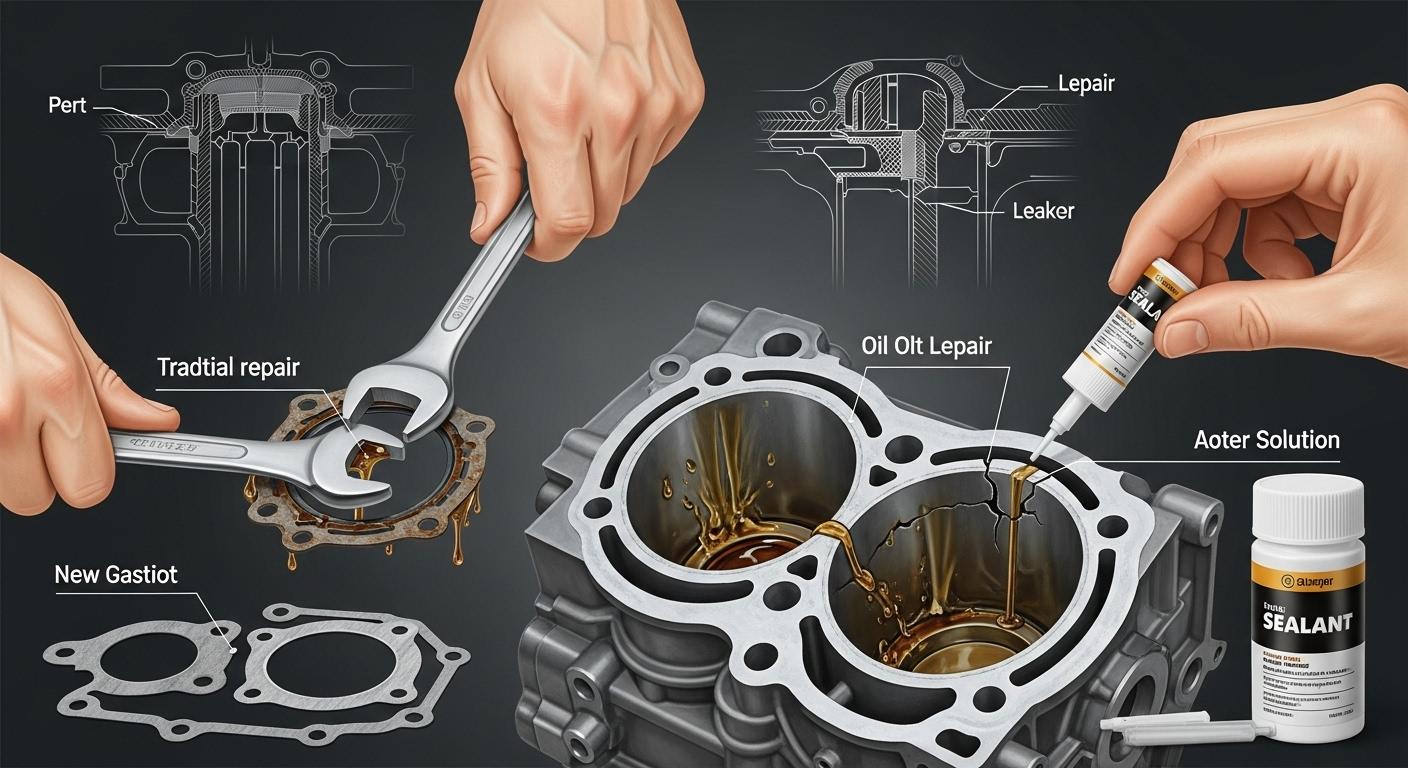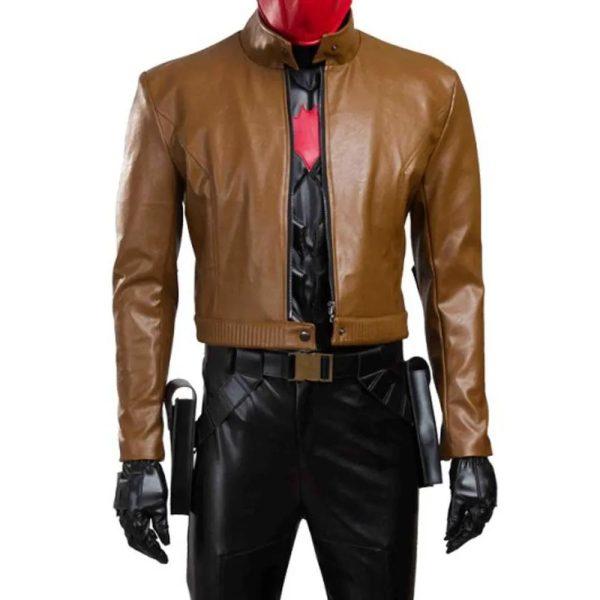What is the best oil leak repair?

The best oil leak repair is a precise combination of correct diagnosis, high quality replacement parts, and expert installation carried out by a trained technician who understands how each engine seal and gasket interacts under heat and pressure. Once you fix an oil leak properly at its source, you restore lubrication, temperature control, and overall engine health. This single truth forms the backbone of everything you are about to read. Oil leak repair is not just a quick fix. It is the accountability your engine depends on to stay clean, smooth, and responsive.
Oil leaks may start as harmless spots on your driveway, but they never stay harmless. They compromise oil pressure, weaken seals, damage hoses, and encourage premature wear inside your engine. This blog gives you an in depth, humanised explanation of how oil leak repair works, the real causes behind leaks, the parts most likely to fail, and what steps ensure a long lasting solution.
Understanding the Real Cause of Oil Leaks
Before any oil leak repair can begin, the source must be identified with absolute accuracy. Oil can travel, creating the illusion that the leak originates from a different location than where it actually started. Effective diagnosis involves visual inspection, pressure testing, UV dye tracing, and an understanding of how engine components expand under temperature.
Oil leaks commonly originate from the valve cover gasket, oil pan gasket, front crank seal, rear main seal, camshaft seals, and the oil filter housing. Worn engine gaskets, loose bolts, degraded seals, or damaged oil lines allow oil to escape under pressure. When left unresolved, these leaks affect engine lubrication, increase operating temperatures, and introduce contamination.
The Importance of Professional Oil Leak Repair
Oil leak repair is not just about replacing a gasket. It is about restoring the integrity of your engine’s lubrication system. A professional technician ensures the correct torque specifications, surface preparation, and sealant application. Over tightening a bolt, ignoring uneven mating surfaces, or using generic low grade gaskets can cause new leaks within weeks.
Proper oil leak repair improves engine life, fuel efficiency, temperature stability, and performance consistency. It also prevents damage to surrounding components like spark plug tubes, serpentine belts, sensors, and catalytic converters, which can be compromised when oil drips onto hot surfaces.
Common Areas Where Oil Leaks Occur
Valve Cover Gasket Leak
A worn valve cover gasket allows oil to seep down the engine block, often creating a burnt oil smell. Repair involves removing the cover, cleaning the contact surfaces, and installing a new high quality gasket.
Oil Pan Gasket Leak
The oil pan sits at the bottom of the engine, making it vulnerable to road debris and thermal expansion. Oil leak repair here includes removing the pan, inspecting for warping, and sealing it with the correct gasket material.
Rear Main Seal Leak
This seal sits between the engine and transmission. When it fails, oil escapes in large amounts. Repairing it requires removing the transmission and applying specialised installation techniques.
Crankshaft and Camshaft Seal Leaks
Rotating seals wear down over time. If they fail, oil escapes while the engine is running. Timely repair prevents oil from contaminating the timing system.
Oil Filter Housing Leak
This is a common leak point in many modern engines. The repair involves removing the housing, cleaning buildup, and replacing the gasket with an upgraded version.
How Long Does Oil Leak Repair Take
The repair duration depends on the leak location. Valve cover gasket repairs may take a few hours. Rear main seal repairs can take most of the day. What matters is precision. Rushing oil leak repair leads to repeat failures, additional costs, and incomplete sealing.
Signs You Need Oil Leak Repair Immediately
Recognising early symptoms prevents major damage. Look for the following warning signs.
-
Oil spots under the vehicle
-
Burning oil smell from the engine bay
-
Blue smoke from the exhaust
-
Low engine oil levels
-
Rough idling or misfires
-
Oil warning light flickering
-
Visible oil on engine components
If you notice any of these, you need immediate inspection before minor wear becomes irreversible damage.
Preventing Future Oil Leaks
Oil leaks can be prevented with consistent maintenance practices.
-
Follow your scheduled oil change intervals
-
Use the manufacturer recommended oil and filter
-
Inspect seals and gaskets annually
-
Monitor signs of coolant contamination
-
Address engine overheating immediately
-
Avoid cheap gasket materials
-
Keep your engine bay clean
These habits reduce pressure buildup, seal degradation, and heat related wear.
What High Quality Oil Leak Repair Looks Like
When oil leak repair is done correctly, you can expect clean contact surfaces, precise gasket seating, proper bolt torque, updated seals, and zero residue. A real technician checks surrounding components to ensure no additional issues remain hidden.
This is the standard offered by Schon Automotive, combining expertise with high grade parts for reliability and long term protection.
Conclusion
Oil leak repair is one of the most important services for maintaining engine health. It preserves lubrication, controls heat, protects moving parts, and prevents breakdowns. The best oil leak repair begins with accurate diagnosis, uses premium seals and gaskets, and delivers craftsmanship that stands up to heat, pressure, and time. Whether the leak is small or severe, fixing it early saves you from expensive repairs and keeps your engine running strong.
Take every oil leak seriously. Your engine depends on it.
Frequently Asked Questions
What is the best way to repair an oil leak?
The best method is to identify the root cause and replace the failed gasket or seal using high quality parts and proper torque specifications.
Can I drive with an oil leak?
You can, but it is not recommended. Even a small leak can grow quickly and lead to overheating or internal damage.
How much does oil leak repair cost?
Costs vary depending on the source. Valve cover gaskets are more affordable, while rear main seals involve more labour.
Why do oil leaks happen?
Wear and tear, overheating, poor quality gaskets, loose bolts, and degraded seals are the most common causes.
How do I know if my engine is leaking oil?
You may notice oil spots, burning smells, smoke, low oil levels, or residue around engine components.





